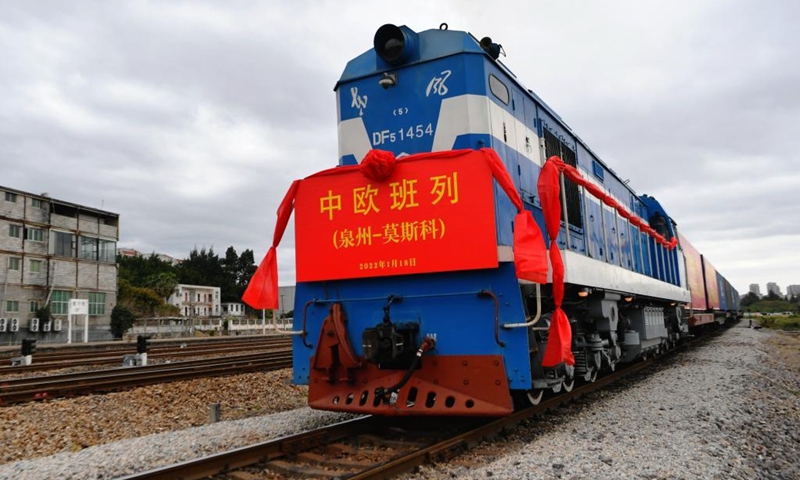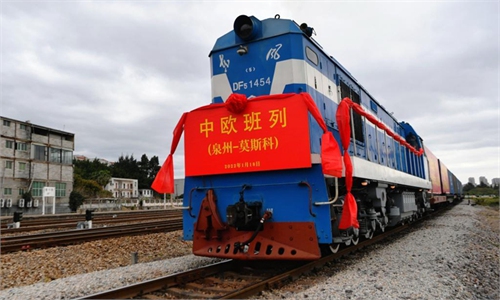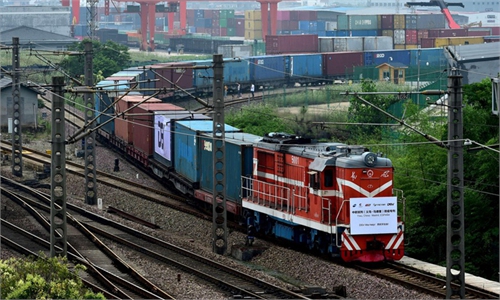China-Europe freight trains undisrupted amid escalating crisis in Ukraine, contingency plan considered

A China-Europe freight train heading for Moscow leaves Quanzhou, East China's Fujian Province, January 18, 2022. Photo: Xinhua
Click here to stay tuned with our live updates on Ukraine tensions.China-Europe freight train service, the major pillar for cross continental trade between China and Europe as well as for countries along the route, saw limited impact despite the escalating crisis in Europe, industry insiders said.
While there are raising concerns that the widening sanctions by the US and its European allies could hit the much-needed supply chain, international traders and transport service providers are keeping a watchful eye on the situation and are considering contingency measures for any potential disruption.
Several industry insiders reached by the Global Times over the weekend said that few lines of the China-Europe freight train service pass through Ukraine and they have been suspended.
Feng Xubin, Vice Chairman of the China-Europe Railway Express Transportation Coordination Committee, told the Global Times that the trains headed for Kiev had stopped shipping before the Russia-Ukraine crisis escalated.
The suspension caused very limited impact, according to data from Russian Railways RZD Logistics. In 2021, container traffic through Ukraine only accounted for 2 percent of the westbound China-Europe freight trains.
Some changes in routes have also been adopted to minimize the impact. For example, the Ukraine Southern Line was temporarily rerouted to the Polish Northern Line that connects the Alashankou Port, in Northwest China's Xinjiang Uygur Autonomous Region, to Malaszewicze in Belarus, and Budapest, Hungary.
The situation in Russia and Ukraine still brings some risks to the cross-border trains.
Feng said that the situation in Ukraine and Russia has caused many exporters, especially "cash-on-delivery" companies, to stop shipping to Russia, Ukraine, and many other parts of Europe and Central Asia. Some even cancelled the planned shipping schedule, he said.
With the unclear situation in Ukraine and the widening sanctions from the West, some industry insiders are preparing for the worse.
Data show that Russia is indispensable and a key part of freight train services.
If the West continues to widen sanctions, Feng said that the freight settlement channel and settlement system between China and Russia will be threatened first.
"At present, freight is denominated in dollars [...] If the West cuts off Russia's intermediate settlement channel in the international financial system, it means that the settlement system for freight charges between China and Russia will not be able to proceed normally," Feng said, suggesting a discussion of contingency plans for direct settlements.



